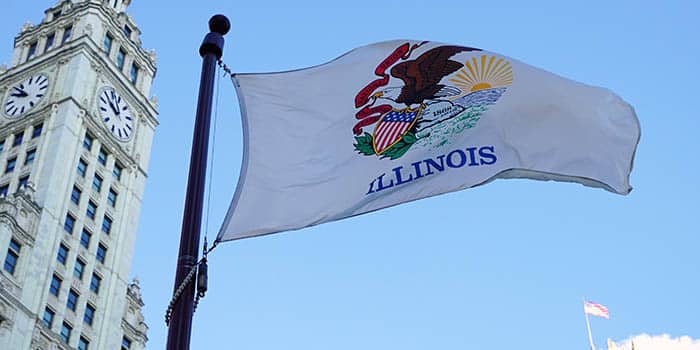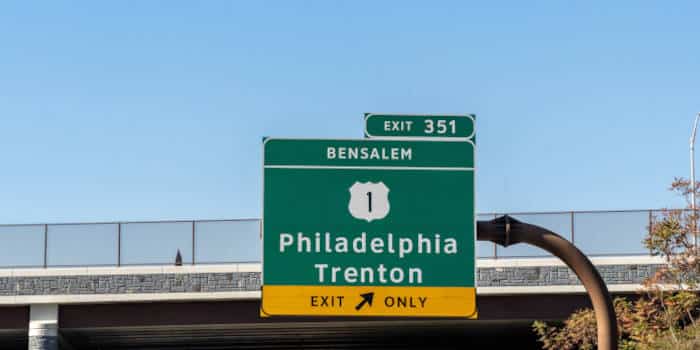- Casino
- By State
- Alabama
- Alaska
- Arizona
- Arkansas
- California
- Colorado
- Connecticut
- Delaware
- Georgia
- Florida
- Hawaii
- Idaho
- Illinois
- Indiana
- Iowa
- Kansas
- Kentucky
- Louisiana
- Maine
- Massachusetts
- Maryland
- Michigan
- Minnesota
- Mississippi
- Missouri
- Montana
- Nebraska
- Nevada
- New Hampshire
- New Jersey
- New Mexico
- New York
- North Carolina
- North Dakota
- Ohio
- Oklahoma
- Oregon
- Pennsylvania
- Rhode Island
- South Carolina
- South Dakota
- Tennessee
- Texas
- Utah
- Vermont
- Virginia
- Washington
- West Virginia
- Wisconsin
- Wyoming
- By State
- Slots
- Poker
- Sports
- Esports
Maryland College Promotes Responsible Sports Betting
Towson University in Maryland launched a responsible gambling campaign to limit the potential harms of sports betting on campus.

The move aims to get ahead of the trend of sports betting becoming increasingly popular, as well as to serve as an example of what the standard approach for universities should look like. Towson University’s program is titled “Tigers Play Responsibly” – after the college’s Tigers moniker.
MA Tigers Support Responsible Gambling
The campaign is not only focused on promoting responsible gambling, but also on education and anti-gambling workshops. It’s funded by the National Council on Problem Gambling’s (NCPG) Agility Grant. The marketing campaign pushes an in-app banner to students who’ve been geo-locked to be on campus and using a sports betting app.
Its message is summarized as PAWS: “Plan ahead, Always know your limits, Wait to play again/wager again, Stop while you’re ahead.” While this covers the responsible gambling side of the university’s efforts, educators are available at sporting events and maintain messaging campaigns on social media to cover the informational side of the campaign.
An Associated Press (AP) report said that between 75% and 80% of college students have gambled in the past year according to research conducted between 2007 and 2014. Coupled with the higher chance of exposure to addictive substances and addictive behavior, this makes Towson University’s program even more necessary, while also showing that college students are indeed a high-risk group.
This is also one of the main reasons why the program was awarded a grant. AP’s report cited Keith Whyte – executive director of NCPG – who said the council believes that prevention efforts with high-risk populations had the highest chance for a bigger impact with the least funding. Many scientists agree that college can expose students not only to addictive substances, but also behaviors.
Sports Betting Gaining Popularity Across US
However, because of the limitations in funding and running time, the program is also facing quite a few challenges, mostly related to prevention and education effectiveness. Pew Research Center’s survey showed that public opinion also adds to these problems, as more than half of the people surveyed thought sports betting to be neither good nor bad for society.
This shows not only that the tax revenue generated from gambling isn’t being used to properly educate people about the dangers of gambling, but also how this reflects on people’s opinions on the matter. This also translates into poor awareness of the legality of sports betting, with 44% of respondents saying they were not aware that there were more states that permit sports betting than states that prohibit it.
The survey was published in September 2022, and the number of states that have legalized sports betting in some form has grown since then. This continues the trajectory that was set before it, and Maryland launched online sports betting after the survey. As it currently stands, sports betting is legal in 33 states, with only five states remaining without any legislation.
Related Topics:
Kyamil is a big tech fan, who loves hummus on everything and has enjoyed writing from a young age. From essays, through personal art, to news pieces and more serious tech analysis. In recent years he’s found fintech and gambling collide with all his interests, so he truly shares our core passion for the entire gambling scene and furthering the education of the mass citizen on these topics.
Must Read
More Articles






Casino
June 30, 2025
Wynn COO Vows Change Amid Ongoing Regulatory Pressure

Casino
June 30, 2025
DIMOCO Enters Germany iGaming Market with Neo.Bet

Casino
June 30, 2025
Man Admits to Laundering Cocaine Money Through Casinos

Industry
June 27, 2025
Las Vegas Sphere Bashed for Charging $170 for Pizza

Casino
June 27, 2025
MGM Yonkers Files $2.3B New York Casino License Bid












